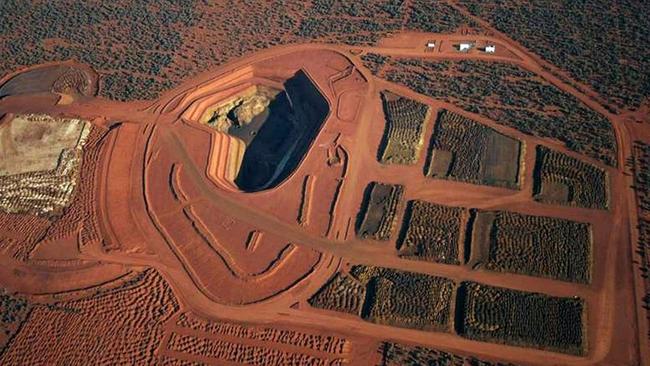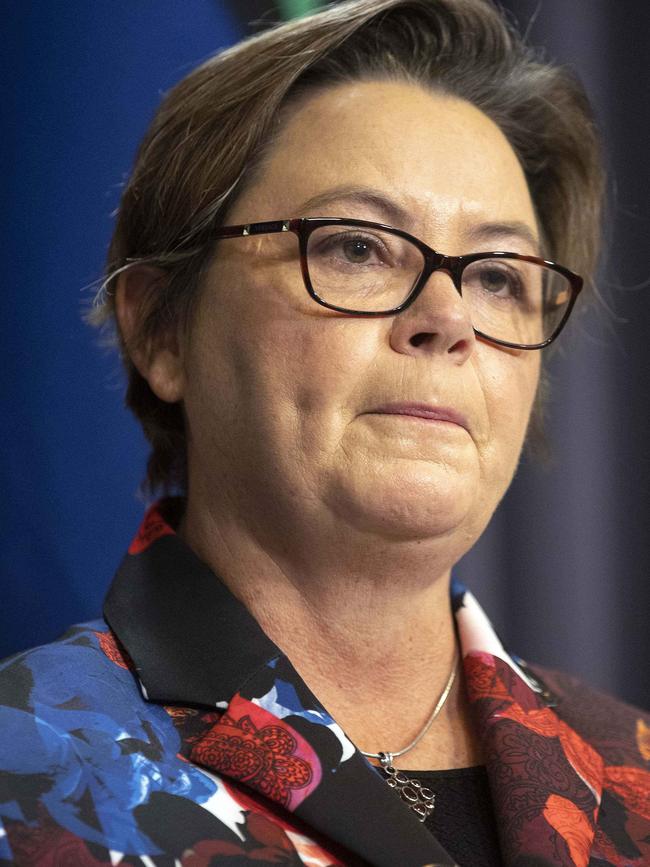Australia uniquely placed to break China’s control of critical minerals: Madeleine King
China has stolen a march on the West in developing mineral resources, says Resources Minister — but Australia is uniquely placed to wrest control back.

Resources Minister Madeleine King says Australia is uniquely placed to overcome China’s “unchallenged” control over critical minerals supplies by “moving up the value chain” to process more of the resources onshore.
In a speech to be delivered to a critical minerals dialogue with key partners on Thursday, Ms King will say “highly concentrated” critical minerals supply chains present a strategic challenge for Australia and its allies but given Australia’s vast critical minerals resources, “it also presents a once in a generation opportunity for Australia”.
“Working together, like-minded partners can build new, diverse, resilient and sustainable supply chains as part of a global hedge against concentration,” Ms King will tell the Australian Strategic Policy Institute’s Darwin Dialogue on critical minerals.
“Diversity … is an intrinsic good and in the interest of all nations.”

Critical minerals including lithium and rare earth metals are vital inputs to key technologies including renewable energy, electric vehicles and defence equipment such as guided missiles.
The “1.5 track” ASPI dialogue will bring together experts and government officials from Australia, the US, India, Japan and The Netherlands.
The upcoming speech follows that of Defence Minister Richard Marles at ASPI’s Sydney Dialogue last week, in which he said Australia needed to be at the cutting edge of new scientific advances.
Ms King will say critical minerals are “the most basic building blocks of those technologies”, and China has stolen a march on the West in developing the key resources.
“The scale of China’s manufacturing and demand has played a key role in driving down the cost of crucial technologies like solar cells, rechargeable batteries, and electric motors,” she will say.
Yet Australia is in “an excellent position” to break China’s stranglehold on critical minerals supplies, Ms King will say, citing US and Japanese support for Australian critical minerals player Lynas Rare Earths, and noting a recent off-take agreement between Australian company Arafura Resources and Germany’s Siemens Gamesa Renewable Energy.
She will also refer to recent agreements with Germany, Britain and India to work on critical minerals projects.
Easter discovery could signal a new boom
On Monday, The Australian reported global electric vehicle and wind turbine enterprises were celebrating the major expansion of an Australian rare earths discovery that now has the potential to rank with China and Myanmar’s ionic clay mines.
The Australian deposits with the potential to challenge China are on the South Australian-Victorian border, some 300km east of Adelaide and 450km west of Melbourne.
The clay-based Australian discovery has been made by Australian Rare Earths, which has a market capitalisation of just $30m.
The deposits contain not only the neodymium and praseodymium rare earths but dysprosium and terbium that on current technology are essential for EVs and wind turbines.
Tesla also announced was attempting to eliminate rare earths from its EV magnets because of the China dominance.








To join the conversation, please log in. Don't have an account? Register
Join the conversation, you are commenting as Logout